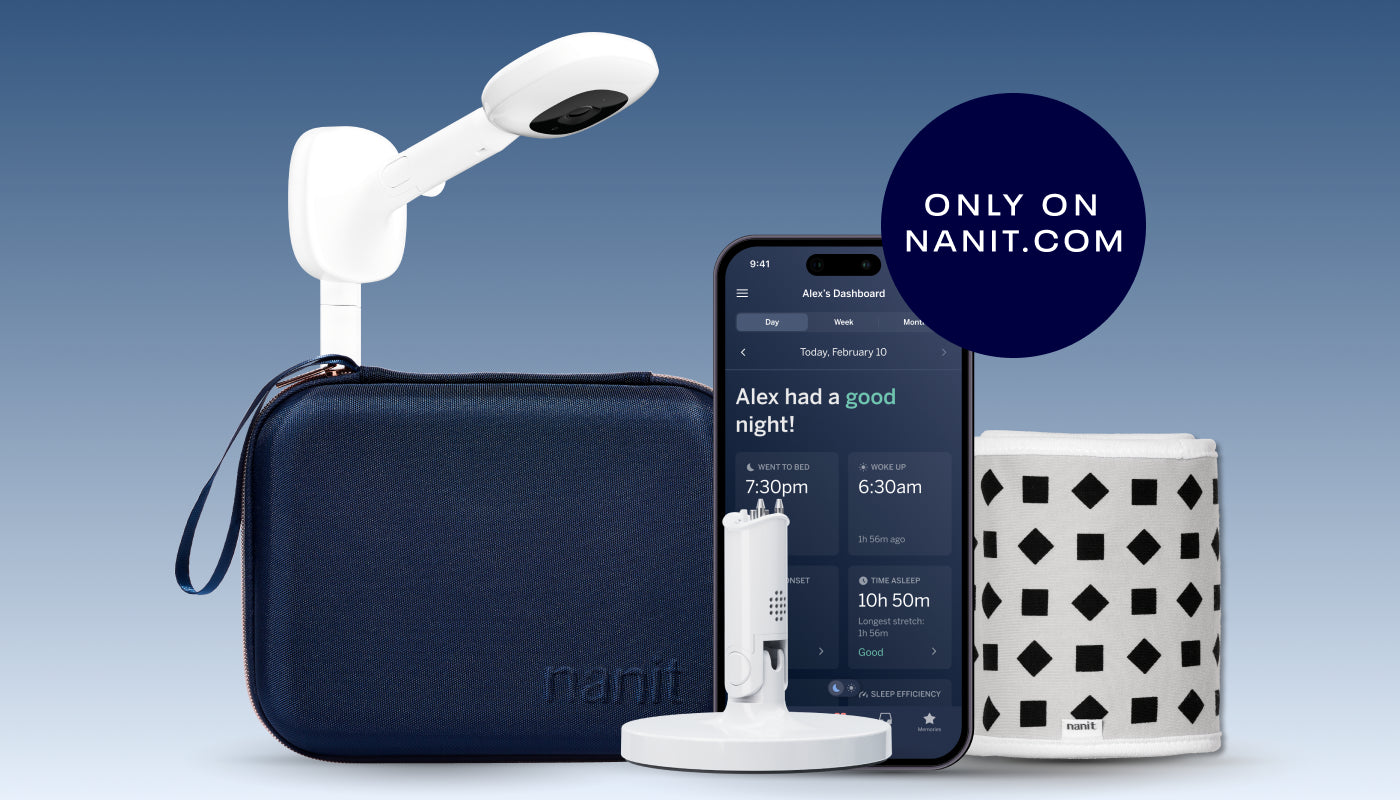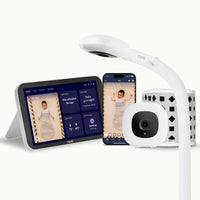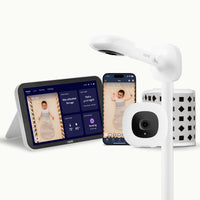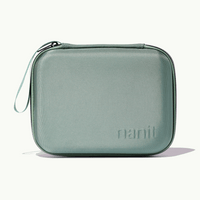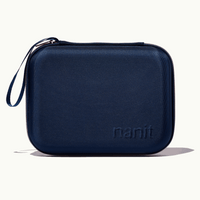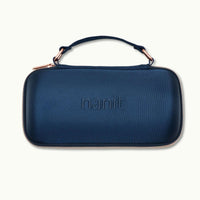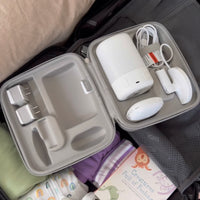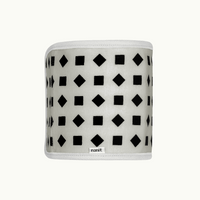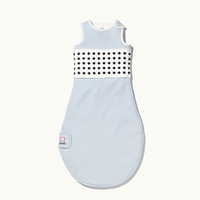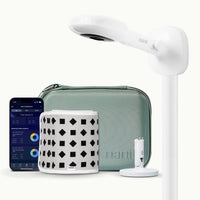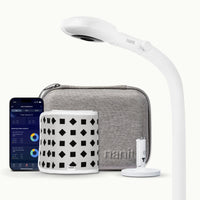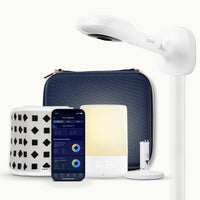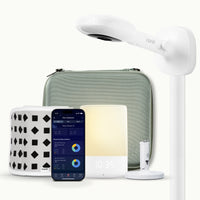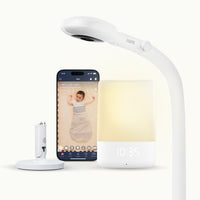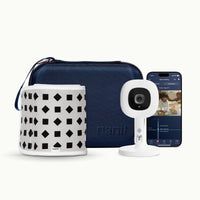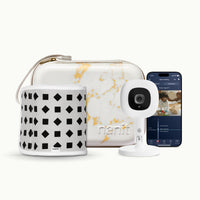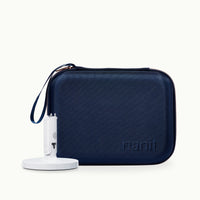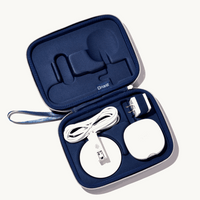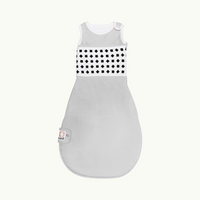Pregnancy can be—literally and figuratively—a heavy lift. Not only is the parent version of you emerging from its cocoon, but you’re also in the process of growing your future child. Amid the planning, celebrations, and endless trips to the bathroom, you might be at a loss when it comes to filling your fridge.
Choosing healthy meals for pregnancy can feel like a moving target when your hormones take over the driver’s seat of your tastes. Your body suddenly needs more food and craves oddly specific things, not to mention you have a whole list of additional nutritional needs. Choosing what to eat when pregnant requires a bit of research and preparation. So to help you plan your menus and shopping list, read on for our top tips on filling your plate, from groceries to calories to prenatal supplements.
Building your plate: healthy eating tips
Eating while pregnant is a whole new ballgame. Not only does your appetite increase significantly (or possibly decrease, especially if you experience morning sickness), but you’re likely also dealing with a whole new palate.
Whether it’s cravings for the common offenders, like pickles and chocolate, or aversions to treats you once loved, pregnancy can turn your eating and grocery shopping routines on their heads.
While it’s completely okay to indulge your cravings during pregnancy, it’s good for your and your growing baby’s health to aim for your food pyramid requirements.
Try to fill your plate with a balance of:
- Protein. Aim to fill a little less than a quarter of your plate with lean protein. This might be a classic protein like poultry, low-mercury seafood, eggs, or tofu. But if your usual favorites suddenly sound way less appetizing, less conventional protein sources like nuts, beans, or low-fat cheese can do the trick.
- Whole grains, legumes, and starchy vegetables. Aim to fill a little more than a quarter of your plate with a carb. Experts recommend avoiding ultra-processed carbs like white bread, white rice, and fried starches. But otherwise, the carb world is your oyster. Go for whole wheat pasta, whole grain bread, lentils, squash, quinoa, oats, brown rice, and even popcorn.
- Non-starchy vegetables. Almost half of your plate can be dedicated to the rest of the world of veggies—leafy greens, peppers, carrots, you name it. There’s no problem with big portions here, and the more color on your plate, the better.
- Fruit. An incredible way to satisfy a sweet tooth while pregnant is to indulge in whole fruits, like apples, strawberries, blueberries, and oranges. Get creative and add fresh fruit to yogurt with honey, oatmeal with cinnamon, or alongside a spoon with a jar of peanut butter.
- Healthy fats. Healthy fats, or unsaturated fats, are good choices during pregnancy, especially to help maintain energy on more physically demanding days. Healthy fat sources include nuts, seeds, avocados, and healthy cooking oils like olive or canola.
- Dairy. Two to three servings of pasteurized dairy per day can also be on the menu. If you typically avoid dairy products (or have become averse to them during pregnancy), there are tons of dairy-free products out there today, like almond milk, coconut yogurt, or vegan cheese.
- Iron-rich foods. Anemia is common in pregnancy and postpartum, so it's important to include iron-rich foods in your diet. Good sources of iron include lean meats, poultry, fish, legumes, tofu, and iron-fortified cereals. Plus, pairing these foods with vitamin C-rich foods can help your body absorb iron better.
Of course, your diet won’t always be perfect. Just be mindful of the foods to avoid during pregnancy and weigh the risks when it comes to making decisions about those foods. Otherwise, you have permission to indulge in foods that you crave, and try to strike a balance between indulgences and nutrients.
In terms of drinks, make sure you’re staying hydrated, but try to avoid sugary beverages and excess caffeine. Water, decaf coffee, and decaf tea are worthy alternatives.
Building your shopping list: foods to eat while pregnant
Pick and choose from these healthful foods as you plan your pregnancy menus. Certain foods offer vitamins, minerals, and amino acids that are particularly helpful during this time.
Vegetables
Vegetables rich in vitamin A and potassium are especially beneficial during pregnancy, including:
- Carrots
- Pumpkin
- Sweet potatoes
- Spinach and cooked greens
- Red peppers
Fruits
When choosing fruits, potassium is one key nutrient for pregnancy. Try:
- Bananas
- Cantaloupe and honeydew
- Grapefruit
- Apricots
- Mangoes
- Prunes
- Oranges
- Tomatoes (they’re a fruit!)
Proteins
The most beneficial protein choices are “complete” proteins, meaning they contain all nine essential amino acids, or nearly complete proteins rich in amino acids. These include:
- Legumes like beans and peas
- Lean, non-processed beef
- Lamb and pork
- Nuts and seeds
- Poultry
- Low-mercury, cooked fish like salmon, trout, herring, sardines, or pollock
Whole Grains
Whole grains can be a great source of iron and folic acid, especially when choosing ready-to-eat options like:
- Cooked cereal
- Oatmeal
- Quinoa
Dairy
Two or three servings of pasteurized dairy can give you the potassium, calcium, vitamin A, and vitamin D you need while pregnant. You can choose options like:
- Skim or 1% milk
- Low-fat or fat-free yogurt
- Almond or soy milk
Adding these foods to your diet can keep you energized and healthy while providing your developing baby with the essential vitamins and minerals they need.
Building your meal plan: general calorie guidelines
It’s a fact that your body needs more food to sustain itself while pregnant, but determining how much more you should be eating per day can be difficult.
In general, healthcare experts report that people who were healthy before pregnancy likely don’t need any extra calories in the first trimester, need about 340 extra calories per day in the second trimester, and need about 450 extra calories per day in the third trimester.
This typically means adding a large healthy snack or two small snacks to your daily eating routine in the second trimester and adding a large healthy snack or small healthy pregnancy meal to your day in the third trimester. However, listen to your body as calorie needs vary per person.
Building your medicine cabinet: prenatal supplements
There are a variety of vitamins that can help support your body through a healthy pregnancy. While no single prenatal multivitamin is likely to be perfect, you can build a supplement routine that helps you boost each of these crucial nutrients, and/or seek to incorporate more nutrient-rich foods into your diet. When planning your prenatal supplement routine, work with your doctor to determine your body’s unique needs and ensure you get the nutrients you need.
Most important prenatal vitamins
When it comes to prenatal vitamins, certain nutrients are especially important for a healthy pregnancy. The most important vitamins include:
- Vitamin B9 (folic acid or folate). Essential for red blood cell production and reducing the risk of neural tube defects. Folic acid is considered the most important prenatal ingredient.
- Iron + Vitamin C. Iron deficiency is common in pregnant women and can lead to low energy, fatigue, and other issues. Vitamin C helps with iron absorption, making this combination important for maintaining healthy iron levels during pregnancy.
- Vitamin B12: Necessary for those who do not eat animal products, as it is primarily found in animal foods. This vitamin is especially important during pregnancy.
Other vitamins with weaker evidence
In addition to the most important prenatal vitamins, other nutrients may also play a role in a healthy pregnancy, although the evidence is not as strong. These include:
- Omega-3 fatty acid DHA. Including DHA in your prenatal supplement routine can benefit both you and your baby. However, while there is some speculation that DHA consumption during pregnancy could improve kids’ cognitive development, the data is mixed.
- Choline. May improve cognition. While the evidence is not as strong, choline is still considered beneficial during pregnancy.
- Vitamin D. Supports immune function, healthy cell division, and bone health. It's important to maintain adequate levels of vitamin D during pregnancy.
- Calcium. Essential for healthy bones, teeth, muscles, and nerves. Including calcium-rich foods or supplements in your diet may help meet your body's increased calcium needs during pregnancy.
Building your night routine with Nanit
The journey into new parenthood brings with it an exciting new array of meals, healthy snacks, and indulgences to explore. When you’re ready to accomplish a seamless sleeping routine with your little one, turn to Nanit.
Nanit’s smart baby monitor lets you rest easy with one less thing to worry about. In fact, 71% of parents with Nanit devices report feeling less anxious.
Our innovative baby monitors give you all the data you need at the touch of a button, from sleep tracking to developmental milestones. You can even build and manage your baby’s nighttime routine from the app. Plus, our Sound + Light Machine helps your baby fall and stay asleep, with Cry Detection technology to give you total peace of mind.
With Nanit, you can trust that your little one is sleeping safe and sound. That means you’re free to catch up on some much-needed rest of your own! Midnight snack, anyone? Sources University of Rochester Medical Center. Pregnancy - How Your Digestion Changes. https://www.urmc.rochester.edu/encyclopedia/content.aspx?contenttypeid=90&contentid=p09521 Oregon Health & Science University. My Pregnancy Plate. https://www.ohsu.edu/sites/default/files/2019-06/CWH-3051517-Pregnancy-Plate-FLY-WEB_0.pdf Parent Data. Prenatal Vitamins—What You Need and What You Don’t. https://parentdata.org/prenatal-vitamins-expensive-worth-it/ Penn Medicine. Moderate Amounts of Caffeine Not Linked to Maternal Health Risks. https://www.pennmedicine.org/news/news-releases/2021/november/moderate-amounts-of-caffeine-not-linked-to-maternal-health-risk Hopkins Medicine. Nutrition During Pregnancy. https://www.hopkinsmedicine.org/health/wellness-and-prevention/nutrition-during-pregnancy Colorado State University. Plant-based protein — A simple guide to getting enough. https://www.chhs.colostate.edu/krnc/monthly-blog/plant-based-protein-a-simple-guide-to-getting-enough/ Office of Disease Prevention and Health Promotion. Eat Healthy Durinig Pregnancy: Quick tips. https://health.gov/myhealthfinder/pregnancy/nutrition-and-physical-activity/eat-healthy-during-pregnancy-quick-tips American Pregnancy Association. Prenatal Vitamins. https://americanpregnancy.org/healthy-pregnancy/pregnancy-health-wellness/prenatal-vitamins/ National Library of Medicine. Vitamin A and Pregnancy: A Narrative Review. https://www.ncbi.nlm.nih.gov/pmc/articles/PMC6470929/ American Pregnancy Association. Roles of Vitamin B in Pregnancy. https://americanpregnancy.org/healthy-pregnancy/pregnancy-health-wellness/vitamin-b-pregnancy/ National Library of Medicine. Vitamin C supplementation in pregnancy. https://www.ncbi.nlm.nih.gov/pmc/articles/PMC9039972 American Pregnancy Association. Vitamin D and Pregnancy. https://americanpregnancy.org/healthy-pregnancy/pregnancy-health-wellness/vitamin-d-and-pregnancy/ American Pregnancy Association. Pregnancy Vitamins and Nutrients. https://americanpregnancy.org/healthy-pregnancy/pregnancy-health-wellness/pregnancy-vitamins-nutrients/ National Library of Medicine. Omega-3 Fatty Acid Supplementation During Pregnancy. https://www.ncbi.nlm.nih.gov/pmc/articles/PMC2621042/
Key takeaways
